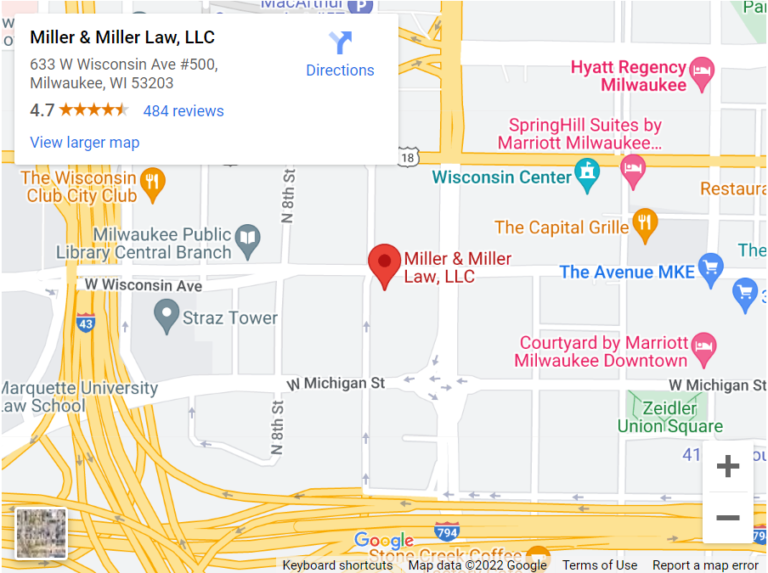Green Card Attorneys in Milwaukee, WI
Green card holders can lawfully live in the United States for the rest of their lives. Getting into the U.S can take as short as few weeks or as long as a decade or more, depending on how you got here or how you plan to get here. In the next section, we listed the most common ways of obtaining a green card.
- Immigration visa preference
- Preference Categories of Visa in Wisconsin
- Consult a green card attorney in Milwaukee, WI
Let’s discover the ways to get a green card and how a Milwaukee green card attorney can help you through the process. Schedule a consultation with our Wisconsin immigration attorneys to discuss your immigration concerns.
What are the Immigrant Visa Preference Categories?
Understanding your Immigrant visa preference categories is the initial step toward getting a green card, but a handful of them awaits. An immediate relative or close family member visa or a highly skilled worker visa is your best option to obtain a Green Card in the United States of America.
On the contrary, your chances of becoming a legal permanent resident in the US are not that high since a small number of diversity lottery visas are issued every year.
How long will my immigration process take?
Your immigration status highly influences your chances of getting a green card. Likely, you may only have to wait a few months for an immigrant visa if you qualify under one of the many categories with a short backlog, such as direct family members or someone who has been living in the country for a certain period.

Immigrant Visa Categories and the Visa Bulletin
We may understand how immigrant visa categories work by checking the most recent information on visa availability from the US Department of State.
Every year, the US limits the number of immigrant visas approved in each category and to immigrants born in certain countries. Section 203 of the Immigration and Nationality Act details the allotment.
The Visa Bulletin breaks down these categories and their numerical constraints. One may find two primary groups of people in the Visa Bulletin. Choices are made based on one’s place of work or one’s personal preferences.
Family-Based Sponsorships
Family-based visa holders do not include spouses, minor children, and parents of US citizens. As a result, immigrant family members can easily obtain visa numbers. The Visa Bulletin classifies visas.
The Visa Bulletin has a table with the deadlines for each category. If your priority date falls within the cut-off date, you can apply for a visa. The day USCIS accepts and processes your immigration petition is your priority date.
Immediate Family Visa
Immediate relatives of US residents or LPRs often get priority. This includes minor children, spouses, and parents. Those seeking permanent residency should have an immediate relative who would sponsor them.
Relatives of permanent residents will be next in line. Most get visas in two years.
Married adult children and siblings of US residents usually wait for the longest for immigrant visas as come even take decades.
Our Wisconsin immigration lawyers can help you save time and money. Self-management of the immigration process may result in increased costs, delays, or even rejection. Contact our Wisconsin immigration attorneys to save yourself thousands of dollars and years of waiting.
Employment-Based Sponsorships
Work and family preference categories are the same. The Visa Bulletin lists the category cutoff dates. Employers will favor you over a relative in employment preference categories.
There are various educational and skill requirements for employment-based immigration. Immigrating becomes more manageable when educational or technical conditions are higher (with some exceptions). Unskilled immigrants may face more significant issues than educated immigrants.
Employment-based petitions are processed faster, but both the immigrant and the employer must submit documentation.
Priority employees are the only ones eligible for the employment first preference category. Internationally popular artists, award-winning scientists, executives, or CEOs of global corporations are examples of these outstanding professionals. The first priority category has never had a visa backlog.
A Second Preference candidate must hold a certified labor certification. An employment offer is necessary, and the employer must submit Form I-140 on behalf of the applicant. If the exemption is in the national interest, applicants may seek a National Interest Waiver. In this case, the applicant may self-petition by completing Form I-140 with proof of national interest. People with advanced degrees and outstanding abilities get 28.6% of the annual global cap on employment-based immigration visas, plus any unused Employment First Preference visas.
This category has two subgroups:
- Obtained master’s or doctorate degree and five years of professional experience.
- Outstanding talent in the arts, sciences, or business. Superior ability indicates having competence well above the norm in the sciences, arts, or business.
Employment Third Preference (EB-3 visa): Skilled, Professional, and Unskilled Workers (Other Workers)
The prospective employer must have submitted an authorized Immigrant Petition for Alien Worker, Form I-140. All such personnel must be certified by the Department of Labor. This preference category gets 28.6% of the annual global cap of employment-based immigration visas, plus any unused Employment First and Second Preference visas.
This category has three subgroups:
- Skilled employees are non-seasonal workers who have completed a minimum of two years of training.
- Employers look for professionals who have at least a bachelor’s degree from a US institution or college, or its international equivalent.
- Unskilled employees (other workers) are those who can fill jobs that don’t need more than two years of training or experience.
Employment Fourth Preference (EB-4 visa)
There are four “special” employment-based preference categories for immigrants, including religious workers while awaiting a decision on their immigration status. It is advisable to consult with an immigration attorney before deciding to apply for this category, since there are a lot of rules and regulations that must be met.
Employment Fifth Preference (EB-5 visa)
Foreign investors who plan to generate jobs in the United States fall under the fifth employment-based preference group. A company that employs ten or more full-time U.S. citizens or permanent residents must have an investment of $500,000 to $1 million in personal assets before an immigrant can be considered for this type of visa. Unless you’re from China, you won’t have to wait long if you meet the requirements and pass the strict screening process of the USCIS.
Diversity Visa Program
The Diversity Visa (DV) program has a “lottery” for green cards. 55,000 visas are available to immigrants from countries with low permanent residency applications. If you meet the criteria and win the lottery, you are lucky and no need to wait.
Wisconsin immigration attorneys can help you get a green card.
Moving to a new country can be difficult. The forms, rules, and requirements are overwhelming to deal with solely. We strongly advise you to consult one of our qualified immigration lawyers. If we can’t help you, there’s no charge. Due to their status, most undocumented immigrants believe they are ineligible for a Green Card or another legal status in the US. With our help, many undocumented immigrants can obtain legal status. Contact us now.
What NOT to do as a Green Card Holder
Green card holders have a wide range of rights in the United States. They can work, own property, travel, and even sponsor their relatives to immigrate to the United States. However, lawful permanent residence is not the same as citizenship. You risk losing your right to live and work in the United States if you do any of the following:
Abandon your status as a resident.
You might face deportation and lose your green card if you leave the U.S for more than six months at a time. Ideally, you won’t lose your green card automatically. Still, you could attract the notice of a customs agent when returning to the United States or while seeking citizenship, and you’ll have to appear before an immigration court.
Failure to inform United States Citizenship and Immigration Services (USCIS) of an address change.
You must keep immigration authorities informed of your current residence.
You are guilty of some offenses.
Offenses like immigration fraud, impersonating a U.S. citizen, treason, and espionage are only a few examples.
- There are no drug offenses other than a single offense of possession of a tiny quantity of marijuana.
- Being the subject of a protective order and then breaking that order.
- Murder, manslaughter, serious violence, theft or robbery, and fraud are examples of “moral turpitude” crimes hotly debated in immigration court. Misdemeanors are included in this category.
- Aggravated felonies – more severe offenses, such as those involving guns, and are determined by state criminal law.
Contact our Milwaukee Green Card Attorneys Today!
When detained by ICE, LPRs may choose to appear in immigration court or be deported instantly. Suppose you have been charged with a crime or have outstanding criminal issues. In that case, you must see an immigration lawyer who understands the impact of different criminal pleas on your immigration status.
Miller & Miller Immigration Lawyers, LLC has experienced immigration attorneys ready to defend you and protect your rights.





